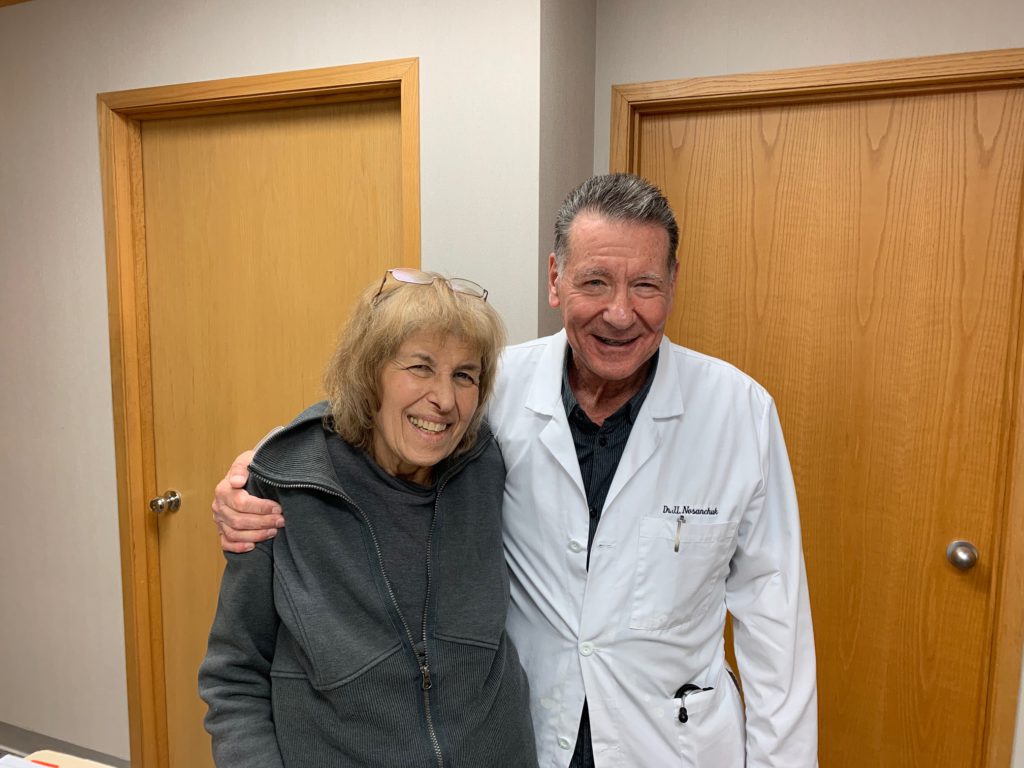Our goal is for every one of our menopausal patients to be able to say … I’m Back to being me.
Dr. N provides bio-identical treatment regimens that will resolve your hot flashes, sweats, sleep disturbances, headaches, fatigue, depression, give you back your sex life and keep you looking younger.
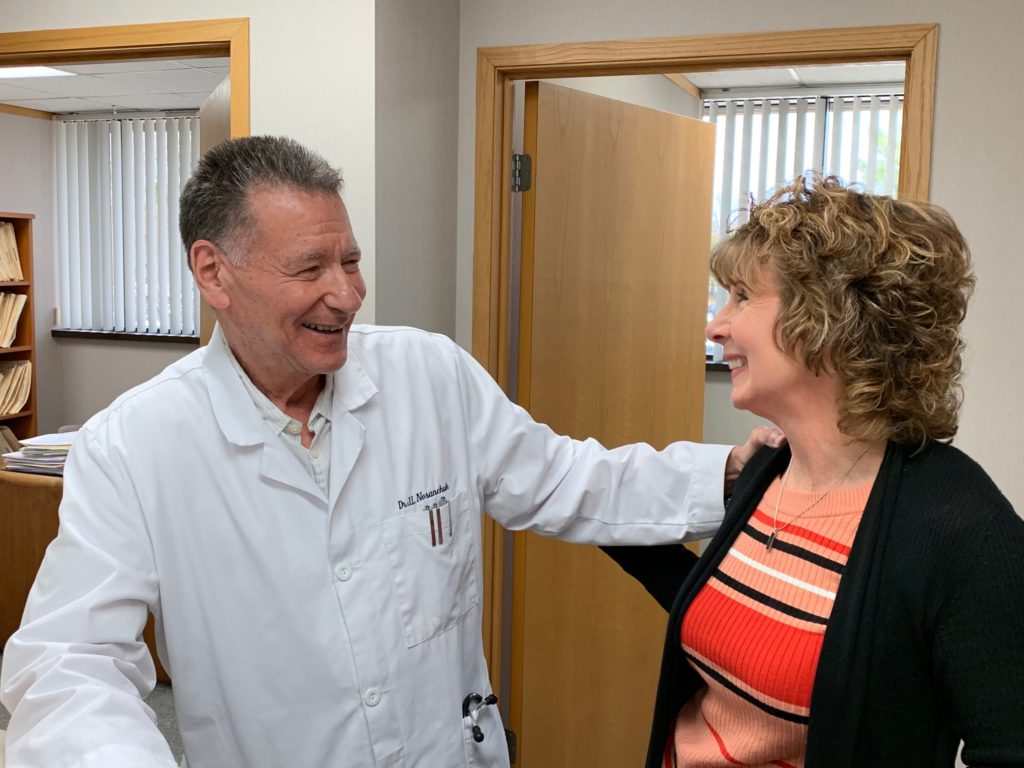
.
Do I need to take progesterone if I am on HRT?
If you still have your your uterus it is important that your HRT regimen includes a progesterone. The reason for this is that one of the natural functions of estrogen is to stimulate lining of the lining of your uterus. Before you reach menopause during your natural menstrual cycle you produce progesterone to prevent the uterine lining from being over stimulated.
Unfortunately, some menopausal women experience unpleasant symptoms while using progesterone. The challenge becomes how to individualize a regimen, that allows menopausal women to receive the documented health and quality of life sustaining benefits of estrogen replacement, while both adequately protecting the uterus and avoiding any potential progestin-related side effects.
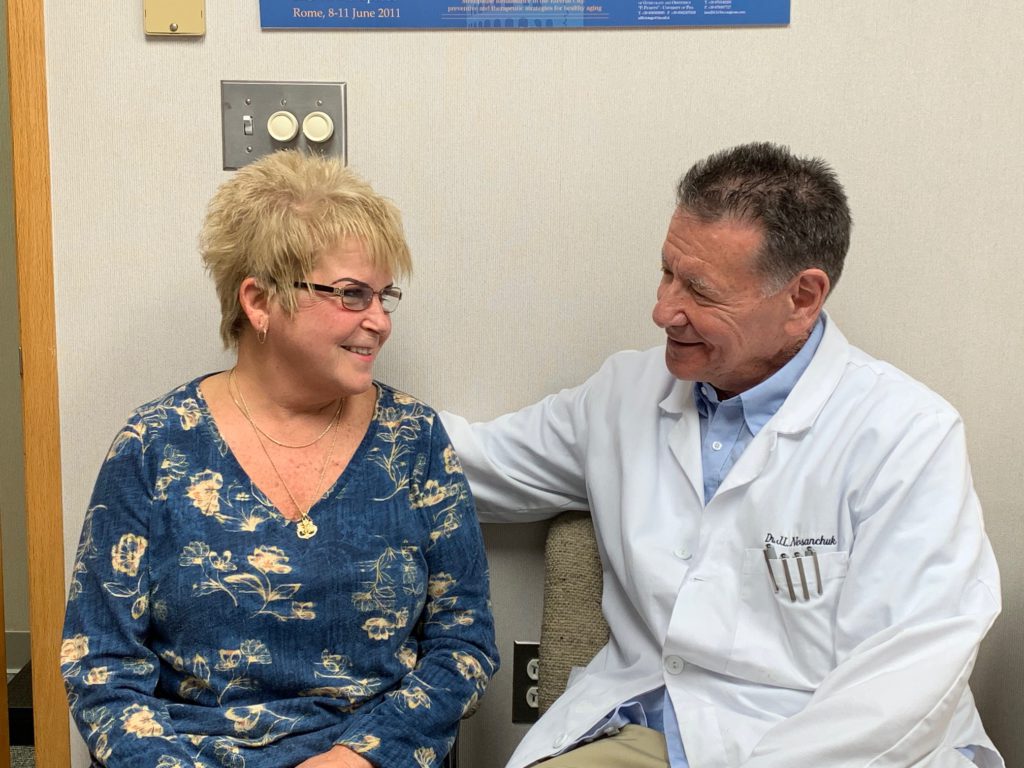
What exactly are progesterone and progestins?
Progesterone is a naturally occurring hormone produced by the ovary following ovulation in premenopausal women. Progestins, are synthetic products, which mimic the effects of progesterone. The term progestogen, is used to describe hormones that provide progesterone-like activity, and this includes both progesterone and progestins. Although it may seem a little confusing at first, when I am referring to both progesterone and progestins collectively, I will use the term progestogen.
What kind of side effects?
Many women are intolerant to progesterone and progestins experiencing unpleasant symptoms, ranging from mild, to severe and life altering. Other menopausal women object to the withdrawal bleeding that may accompany progesterone and progestin use.
In addition, there is evidence that some progesterone, or progestin regimens may interfere with the beneficial effects of estrogen.
Will I definitely have unpleasant symptoms while using a progestogen?
No, the majority of women may not experience significant symptoms while using a progestogen. However, those women who do are often discouraged from continuing their HRT program.
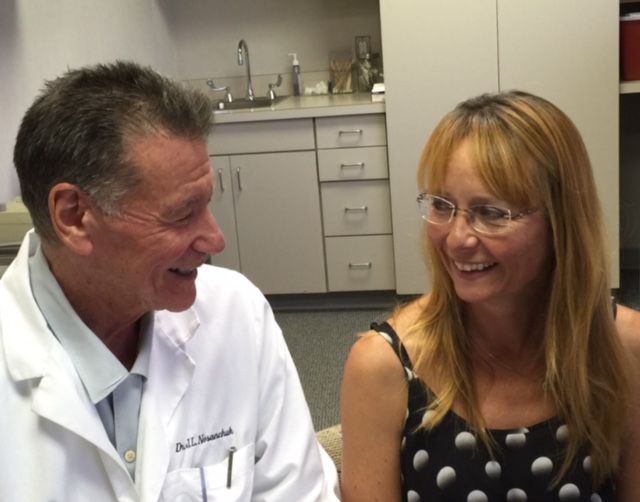
What unpleasant symptoms can accompany progestogen use?
Unpleasant symptoms may include irritability, fatigue, depression, diminished libido, emotional volatility, breast tenderness, muscle aches, fluid retention, constipation, uterine cramping, changes in appetite, headaches and insomnia. Some women may experience none of these symptoms while others may experience all of them.
What kind of problems can “unopposed” estrogen stimulation cause?
“Unopposed” estrogen administration may result in irregular and excessive vaginal bleeding and abnormal changes of the uterine lining, including estrogen-induced endometrial cancer. Progestogens downgrade the sensitivity of the estrogen receptors in the uterine lining and reduce the frequency of these problems. It is so effective in preventing excessive stimulation of the uterine lining, that appropriate administration of progestogen, lowers the incidence of endometrial cancer to below that of non-users of HRT.
How do I include a progestagen in my HRT regimen?
There are 2 basic regimens, along with some variations.
In the first the estrogen is given continuously and the progestogens are taken for 10-12 days each month. In this method, after finishing the progestogen, women using this regimen will usually have what is referred to as “scheduled withdrawal bleeding,” beginning 1-7 days after the final progestogen dose each month. This is referred to as “sequential therapy.” Some women find the bleeding unacceptable and are less likely to continue HRT.
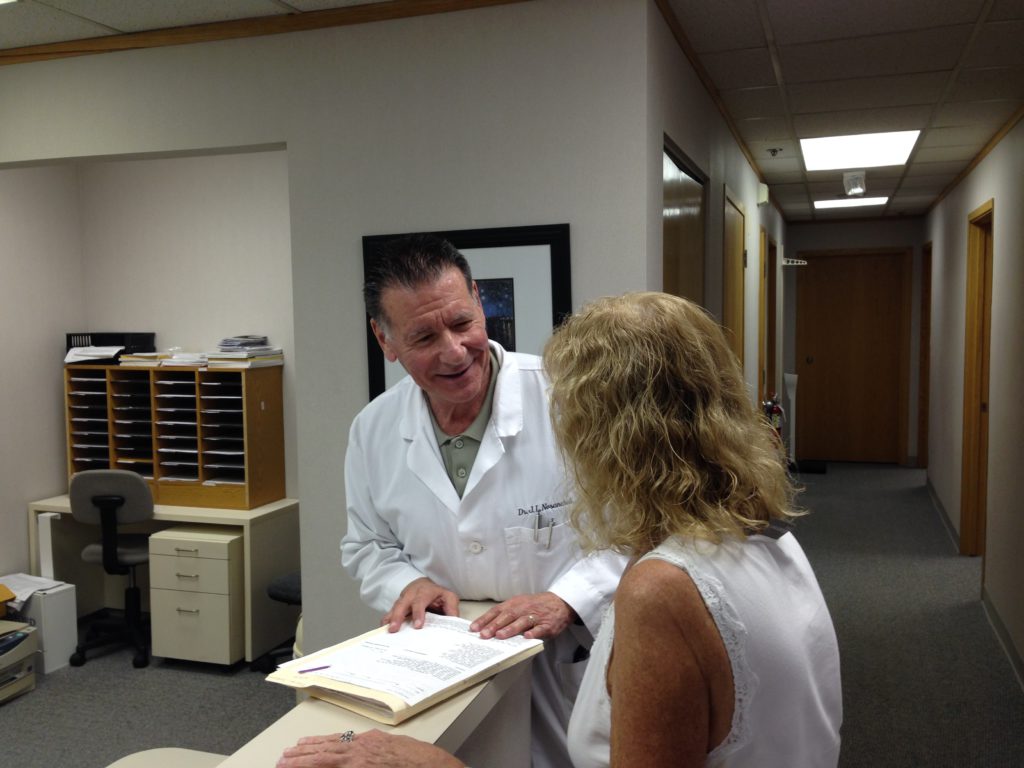
In the second method, estrogen and a smaller dose of a progestogen are combined and taken daily. This is often referred to as “continuous-combined therapy.” The rationale for this regimen is to prevent any vaginal bleeding, but some women experience persistent spotting, or bleeding. This regimen is available in both oral and transdermal formulations. It is recommended by many experts and has gained wide patient and physician acceptance in the United States.
Which method do you recommend?
I almost always suggest sequential HRT regimens. On the surface it might seem more attractive to use continuous-combined therapy and avoid any withdrawal bleeding, but this method may be less optimal than using a progestogen for 10-12 days each month.
Why?
There are many women who are users of continuous combined-therapy and are happy with this regimen. They have good control of menopausal symptoms, are not bothered by the daily progestogen dose and are able to avoid any withdrawal bleeding. For women who consider scheduled vaginal bleeding unacceptable and would not use HRT if it necessitated bleeding, continuous combined therapy is likely the best option.
Nevertheless, there is preliminary research evidence that suggests that a commonly used oral continuous-combined HRT formulation containing conjugated equine estrogen and medroxyprogesterone may interfere with the cardioprotective benefits of estrogen.
In addition, studies funded by the National Cancer Institute demonstrated an increase in the incidence of lobular carcinoma, a relatively uncommon form of breast cancer in patients using this formulation. The over all increase in cancer risk appears to be small and further studies are needed to define the issue, however for the moment, it might be more prudent to use either sequential therapy, or a non oral formulation of continuous-combined therapy.
There are alternate oral continuous-combined formulations and the status of these preparations relative to the aforementioned studies will be addressed in ongoing and future research.
If a woman has had a hysterectomy does she need to take a progestogen?
If the uterus is not present, there is no need for a progestogen, natural, or synthetic. Some make the argument that progesterone should be used “for balance,” in women without a uterus, as it more closely resembles a woman’s natural cycle. I do not recommend this as a premenopausal woman’s progesterone level is for practical purposes nearly undetectable for most of the ovulatory cycle and there is no reason to unnecessarily expose her to any potential negative consequences of progestogen use.
There is one subset of women who have had a hysterectomy where progestogen replacement would be a consideration. Those women who have had a surgical menopause because of endometriosis and residual endometrial tissue is known, or suspected to remain in the body. There have been a few cases reported in the medical literature where residual endometrial tissue has undergone malignant transformation. This is rare, but if residual endometriosis is a consideration, 10-12 days of a progestogen at 1-3 month intervals would be reasonable.
I suffer from a number of the symptoms you mention while using a progestin, is there any way to lessen the problem?
In some, but not all cases, it is possible to diminish the impact of these problems by changing the type, dose, schedule, or route of administration of the progestogen, but ultimately the symptoms are a direct effect of the progestogen, whether synthetic or natural. Many women have fewer symptoms when using a product such as micronized progesterone, either from a compounding pharmacy, or from the local pharmacy, where it is sold under the name of Prometrium. Women who are allergic to peanuts should not use this compound, as it contains peanut oil. Some women find they experience fewer symptoms when using a progestogen by the vaginal route, either in suppositories, or in cream form.
One strategy that is useful is to increase the progesterone free interval to 2, 3, or 4 months taking care to monitor for signs of endometrial overstimulation. Some doctors have had good results with the use of a progestin-releasing intrauterine device, which some research indicates is capable providing endometrial protection. However, in some women it is virtually impossible to include a progestogen in their HRT regimen due to the severity of the negative effects. In this extreme situation, it may be necessary to leave the progestogen out of the program entirely. However, users of unopposed estrogen who have a uterus should be monitored carefully, without exception, for the development of abnormal changes of the uterine lining.
I have heard a lot about natural progesterone skin creams, including one that contains Yam progesterone. Is this a good thing for me to use?
I do not believe there is any benefit to using progesterone skin creams, as they do not provide any protection from the long-term negative health consequences of hormone deprivation. Yam and other plant progesterones, cannot be metabolized in the human body, unless they are modified pharmaceutically and any suggestion that they provide benefit, other than skin lubrication, is without basis. Progesterone skin creams that purport to be “natural,” often contain micronized progesterone as the active ingredient. There is one study that suggested that a progesterone skin cream was mildly beneficial in reducing the severity of hot flashes.
There are those that recommend the use of progesterone skin cream as it is “natural” and counteracts any “estrogen dominance.” However, the defining feature of menopause is ovarian failure and its accompanying estrogen deficiency. As such, by definition, all menopausal women are estrogen deficient and the concept that they are suffering from “estrogen dominance,” is not plausible. These products are very effectively marketed and I believe that careful scrutiny will reveal that a significant number of those who advocate their use profit by their sale.
Dr. Jerry Nosanchuk is a practicing physician who has specialized in the care of menopausal women for over 30 years. His office is located in Bingham Farms, Michigan. Appointments with Dr. Nosanchuk can be made by calling: (248) 644-7200 and speaking to Caroline Monday through Friday from 10AM to 6PM
IMPORTANT: This website is for educational purposes only. It is not intended to suggest a specific therapy for any individual and must not be construed to establish a physician patient relationship.
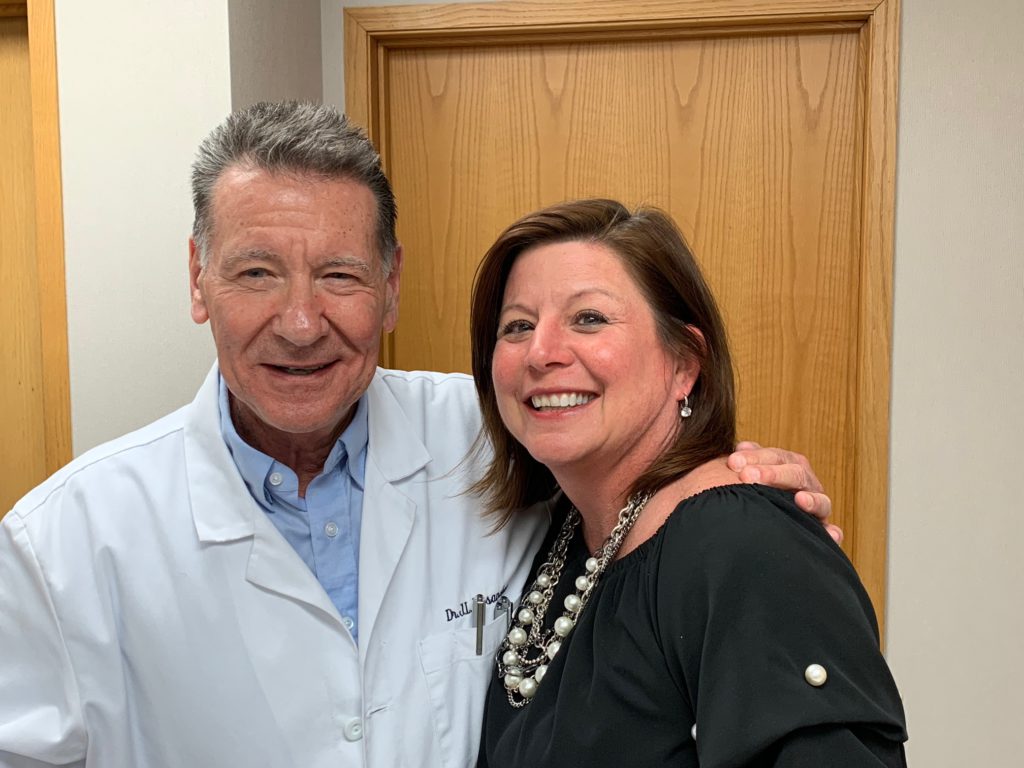
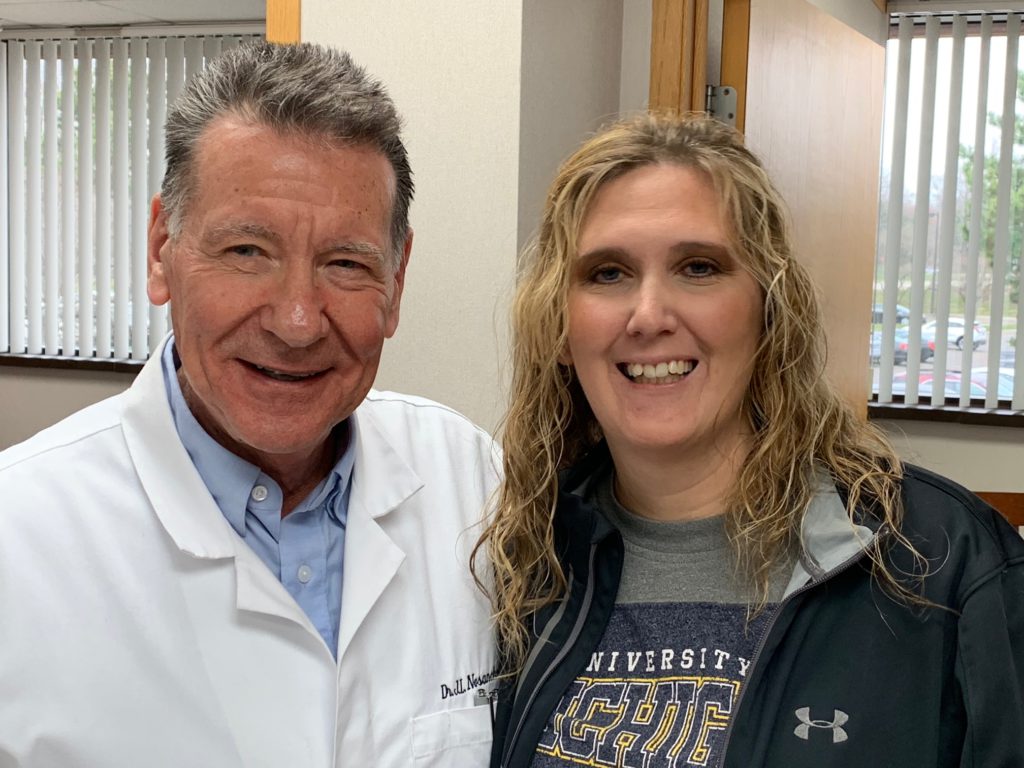
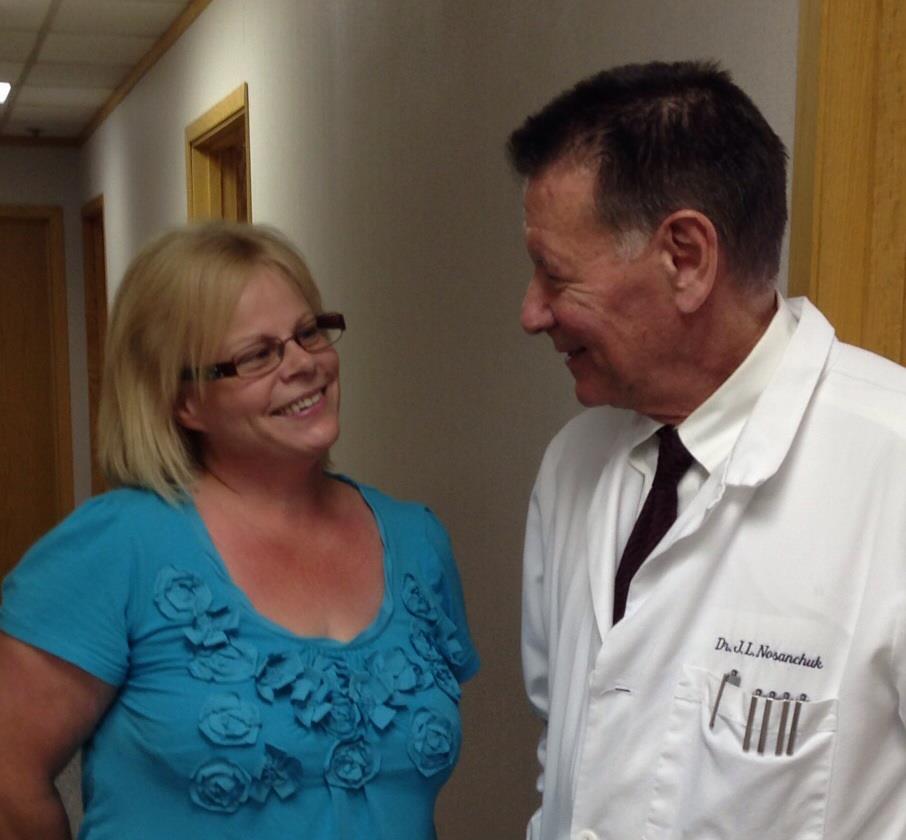
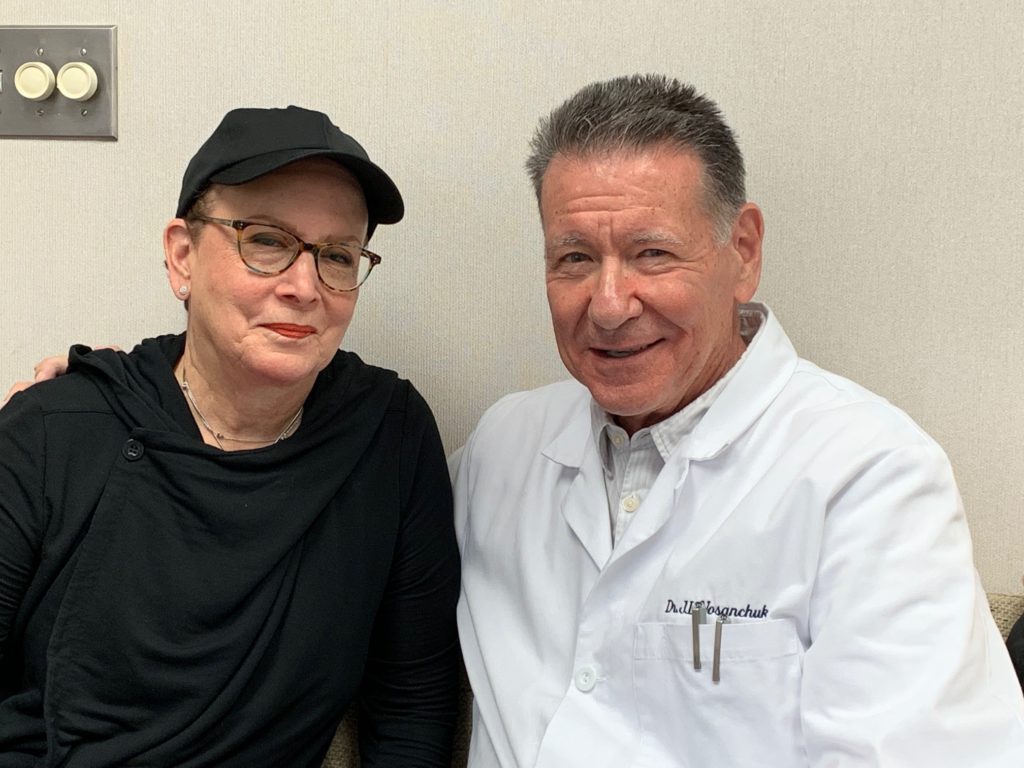
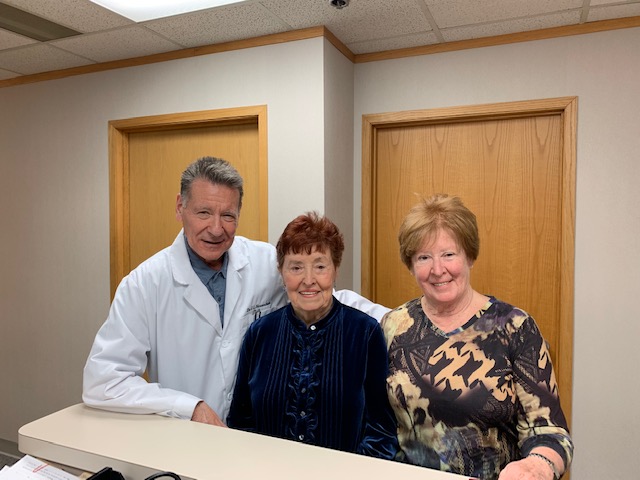
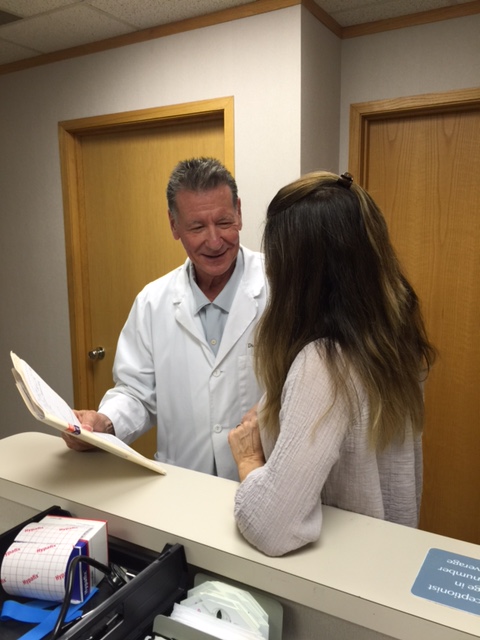 are bio-identical to those secreted by the ovary and are (2) delivered into the bloodstream with their chemical structure intact in (3) amounts sufficient to exert their intended affect that (4) remain at relatively stable blood levels.
are bio-identical to those secreted by the ovary and are (2) delivered into the bloodstream with their chemical structure intact in (3) amounts sufficient to exert their intended affect that (4) remain at relatively stable blood levels.